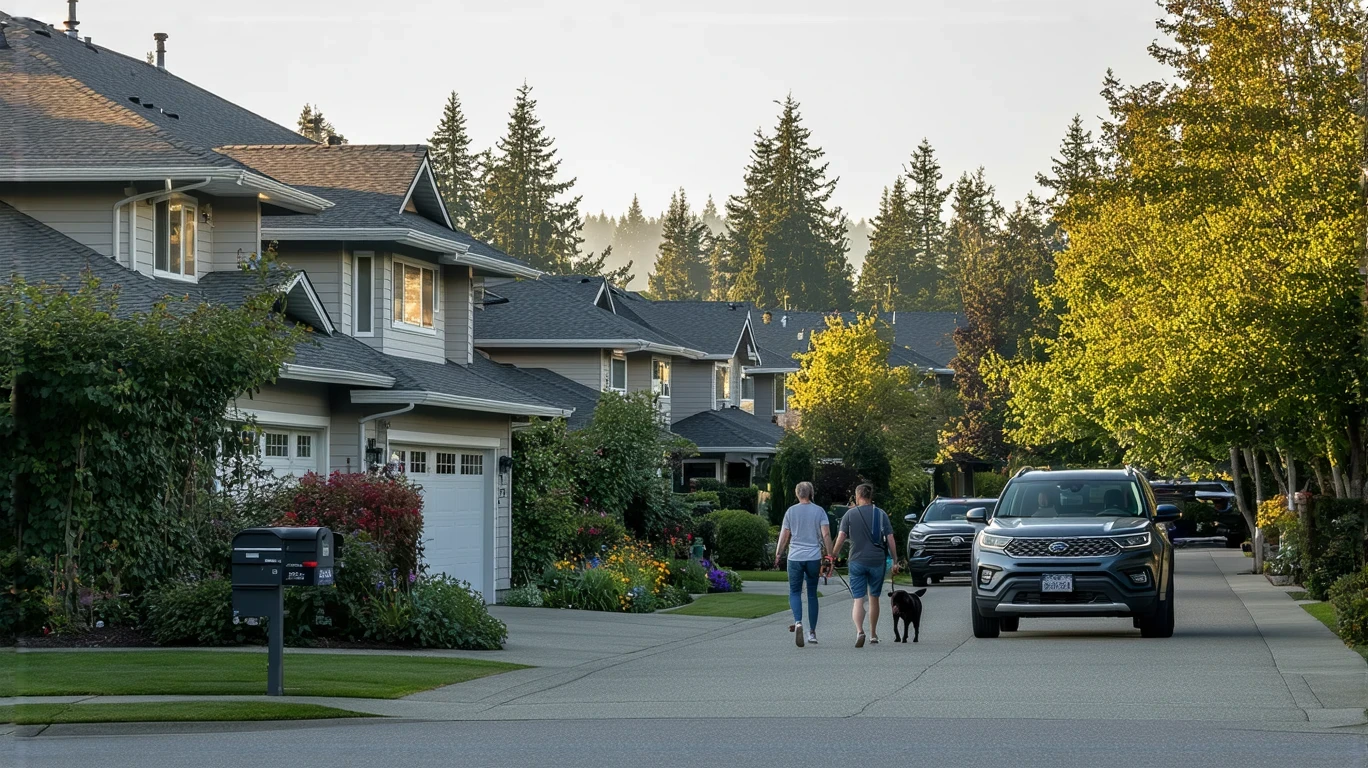Is it cheaper to rent or buy right now in Lynnwood, WA? The cost of living in an apartment vs house in Lynnwood depends on several factors. While renting offers more flexibility, buying builds equity over time. Let’s take a closer look at the housing costs and trends shaping the Lynnwood market in 2023.

The Housing Market in Lynnwood Today
Lynnwood’s housing market reflects the broader Seattle metro area — steady demand, limited inventory, and above-average prices. However, Lynnwood still offers relative affordability compared to Seattle proper. Single-family homes in established neighborhoods are popular with families, while new apartments and condos are rising near downtown and transit hubs.
One trend of note in Lynnwood is the “green factor” — a growing number of apartment complexes and planned communities are integrating shared green spaces, walking paths, and other eco-friendly amenities that appeal to sustainability-minded residents. These perks often come with a premium, but many renters and buyers are willing to pay for a lifestyle upgrade.
Renting in Lynnwood: What’s Typical?
As of mid-2023, the average monthly rent for a 1-bedroom apartment in Lynnwood is around $1,800, while a 2-bedroom typically goes for $2,200 or more. Popular renter areas include the City Center district, where walkable amenities and swift access to I-5 command top dollar, and the more residential Alderwood and Meadowdale neighborhoods.
Rent in Lynnwood has risen by nearly 10% in the last year, outpacing wage growth. However, pockets of affordability remain. Older garden-style apartments, particularly those a bit farther from major employers or retail centers, can offer 2-bedroom rates closer to $1,600. Many of these properties cater to working-class families or young professionals.
Owning a Home in Lynnwood
The median home price in Lynnwood sits near $750,000, reflecting a mix of older single-family homes, new townhomes, and the occasional luxury property. For a typical starter home, buyers can expect a monthly mortgage around $3,200, assuming 10% down. High demand and low inventory keep the market competitive.
Ownership costs extend beyond the mortgage payment. Property taxes in Lynnwood average 1.1%, adding roughly $690 per month. Many neighborhoods have active HOAs, with dues ranging from $200 to $500. Utilities, insurance, and maintenance can add $500 or more. All told, the monthly cost for a median-priced home often exceeds $4,000.
Renters vs. Homeowners: Who Lives Where?
Lynnwood’s homeownership rate hovers around 54%, just below the national average. Older, more established residents tend to own, while younger singles and couples are more likely to rent. Some retirees downsize to accessible apartments or 55+ communities, but many remain in their longtime homes.
Renting is common among Lynnwood’s diverse immigrant communities, including Hispanic, Korean, and Vietnamese households. High home prices and cultural factors contribute to this trend. However, some families do purchase homes through multigenerational financing or first-time homebuyer programs.
| Typical Monthly Housing Costs in Lynnwood | Apartment (2BR) | House (Median Price) |
|---|---|---|
| Rent/Mortgage | $2,200 | $3,200 |
| Property Tax | – | $690 |
| Utilities | $180 | $320 |
| Insurance | $15 | $110 |
| HOA/Maintenance | – | $350 |
| Total | $2,395 | $4,670 |
Estimates reflect mid-range properties and average usage.
What’s Driving Costs Up or Down?
Several factors influence the cost of housing in Lynnwood. The robust job market, driven by employers like Boeing and Providence Regional Medical Center, attracts well-paid professionals who can afford higher rents and home prices. Amazon’s expansion in nearby Bellevue has ripple effects.
Construction costs also play a role. Developable land is limited, and new projects often require complex permitting and density bonuses. Some older apartments are being renovated or replaced, putting upward pressure on rents. However, the growing supply of transit-oriented housing near the Lynnwood Link light rail station could help meet demand.
FAQs About Housing in Lynnwood
- Is Lynnwood affordable to live in? Lynnwood is relatively affordable compared to Seattle, but housing costs are still above the national average. Renting is more attainable for many households, but homeownership is out of reach for some.
- Why are housing prices changing? Limited supply, high demand, and rising construction costs all contribute to increasing prices. The influx of high-wage workers also drives up rents and home values.
- How does Lynnwood compare to nearby cities? Lynnwood is more affordable than Bellevue or Kirkland, but pricier than Everett or Bothell. It offers a mix of suburban amenities and urban access that appeals to many renters and buyers.
Making Smart Housing Decisions in Lynnwood
Whether renting or buying in Lynnwood, it’s essential to budget for the full cost of housing — not just rent or mortgage, but also utilities, taxes, insurance, and maintenance. Experts recommend spending no more than 30% of gross income on housing, but in high-cost areas like Lynnwood, many households stretch to 40% or beyond.
Lynnwood offers a variety of housing options for different budgets and preferences. Renters can find relative value in older apartments or garden-style communities, while buyers may need to compromise on size, location, or amenities to find an affordable home. Ultimately, the decision depends on your financial goals, lifestyle needs, and long-term plans.
For more info, check out our guides on Sample Monthly Budgets for Lynnwood in 2025 and the Cost of Living in Lynnwood – Housing, Groceries, Taxes & More.
